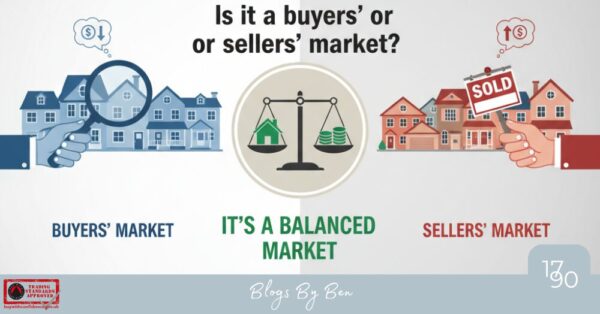
Pricing a home for sale in Lincoln can be challenging; however, understanding the appropriate approach can significantly impact the outcome. Given the fluctuating market conditions and the abundance of comparable sales in the area, determining the optimal price necessitates meticulous analysis. This guide outlines essential factors, recommends establishing the right price, and discusses effective strategies for attracting potential buyers. Whether you are an experienced seller or entering the market for the first time, these insights are designed to enhance your selling experience.
Factors to Consider When Pricing Your Home
When selling a home, it is essential to understand the intricacies that influence property pricing to ensure a successful transaction.
Homeowners in Lincoln encounter unique market conditions that can significantly impact property valuation, necessitating a comprehensive pricing strategy tailored to current trends.
Analysing local market trends and considering buyer demand are critical components, as each factor plays a substantial role in determining the optimal listing price.
Additionally, it is essential to consider how neighbourhood amenities, square footage, and specific home features contribute to the overall perception and value of the property.
Consequently, conducting a thorough market analysis is imperative for making informed decisions regarding the home sale.
Market Conditions in Lincoln
Understanding the market conditions in Lincoln is essential for homeowners contemplating a sale, as these factors significantly influence overall demand and competition within the region. Whether the market is characterised as a seller’s or buyer’s market, these conditions directly affect home pricing and can either facilitate or impede a successful transaction.
Currently, Lincoln is experiencing heightened buyer demand, attributed to low interest rates and a growing population. This positions homeowners advantageously in a seller’s market.
Recent statistics indicate that homes sell approximately 15% faster than the previous year, reflecting a notable trend towards expedited sales and potentially higher offers. This situation is further exacerbated by a limited inventory, with the number of available homes decreasing by nearly 10%, intensifying buyer competition.
Consequently, homeowners can leverage these market dynamics to maximise their sale price, while potential buyers may need to act promptly to secure a property in this active real estate environment.
Comparable Sales in Your Area
Conducting a comparative market analysis (CMA) is essential for assessing the sales history of homes similar to yours in the vicinity. This provides critical insights into the pricing adjustments required for a successful home sale. By examining neighbourhood comparisons, one can ascertain how local market trends impact the potential listing price of the property.
This process entails collecting data on comparable properties, commonly called ‘comps,’ that have recently sold within your neighbourhood. Analysing key factors such as square footage, the number of bedrooms and bathrooms, location, and distinctive features offers a comprehensive understanding of the pricing landscape.
Reviewing the sales history of these comparable homes can uncover patterns that may influence your pricing strategy. For instance, understanding whether homes have sold for above or below their asking prices can provide valuable insights into market competitiveness.
Incorporating this information enables homeowners to make informed decisions, resulting in a more effective and attractive listing price.
Tips for Setting the Right Price
Establishing an appropriate price for a home necessitates a comprehensive pricing strategy that considers several critical factors, including home valuation reports, the condition of the property, and various financial considerations.
Accurately pricing a home enhances the likelihood of attracting potential buyers while optimising the return on investment.
Working with an Estate Agent
Partnering with an experienced estate agent can significantly streamline the pricing strategy and home selling process, ensuring informed decisions that align with local market conditions.
A knowledgeable agent will develop a comprehensive marketing plan that emphasises your home’s unique features while utilising effective negotiation tactics to attract potential buyers.
This expertise enhances the property’s visibility and provides a competitive advantage during negotiations. Additionally, the agent will conduct thorough market analyses to determine an optimal price point, thereby preventing costly missteps that could result in prolonged listings or undervaluation.
With a firm grasp of current trends, they can offer expert advice on home improvements that yield the best return on investment.
Ultimately, engaging a qualified professional can transform the often overwhelming home-selling process into a seamless experience with opportunities.
Considering Upgrades and Renovations
When contemplating the sale of a home, it is imperative to evaluate potential upgrades and renovations that can enhance the property’s appeal and increase its value in the eyes of prospective buyers. A thorough understanding of how home improvements impact the overall condition of a property is essential for making informed pricing adjustments that can yield significant returns.
Investing in key renovations, such as modernising kitchens or updating bathrooms, can substantially elevate a home’s desirability. Potential buyers often regard these areas as focal points, and when finished with quality materials and contemporary designs, they can command higher prices.
Enhancing kerb appeal through landscaping or exterior painting not only attracts interest but also establishes a positive impression of the home’s interior.
Ultimately, strategic investments in home improvements enhance the living experience and maximise the property’s investment potential, ensuring an optimal balance between current enjoyment and future returns.
Strategies for Attracting Buyers
Attracting potential buyers necessitates a meticulously developed marketing plan that integrates various strategies, such as online listings, viewings, and targeted advertising, to enhance the property’s visibility.
The visual appeal of the home, achieved through high-quality photographs and professional staging, can profoundly impact buyer interest and engagement.
Marketing Your Home Effectively
Utilising digital marketing and social media promotion can significantly enhance the effectiveness of online listings by showcasing unique home features and maximising curb appeal. One can reach a broader audience by leveraging these platforms, thereby increasing the likelihood of attracting interested buyers.
Creating engaging posts highlighting specific aspects of the property, such as recent renovations or appealing landscaping, is essential for capturing the attention of potential buyers. Social media channels such as Instagram and Facebook provide opportunities for visual storytelling, enabling the sharing of vibrant images and virtual tours.
Online listings should incorporate high-quality photographs and detailed descriptions that emphasise the home’s distinctive attributes. Optimising these listings with relevant keywords will enhance search visibility, facilitating easier access for prospective buyers.
Regular updates and interactions through these digital platforms contribute to building interest and trust, thereby establishing a positive online presence that resonates with the target market.
Negotiating with Potential Buyers
Negotiating with potential buyers is a critical component of the home-selling process, necessitating the employment of effective negotiation tactics to navigate buyer demand and address potential sale contingencies. Understanding the implications of closing costs and seller disclosures is essential for reaching a mutually beneficial agreement.
To successfully finalise the sale, it is imperative to recognise how these elements influence the overall transaction. For instance, discussions regarding the allocation of closing costs can significantly affect a buyer’s willingness to proceed with the purchase.
Implementing strategies such as pre-inspections can help identify potential issues that may arise during negotiations, enabling sellers to address concerns proactively. Transparency regarding seller disclosures fosters trust and helps mitigate the risk of last-minute renegotiations.
By employing these strategies and maintaining open lines of communication, home sellers can facilitate a smoother transaction process while maximising the value of their property.




